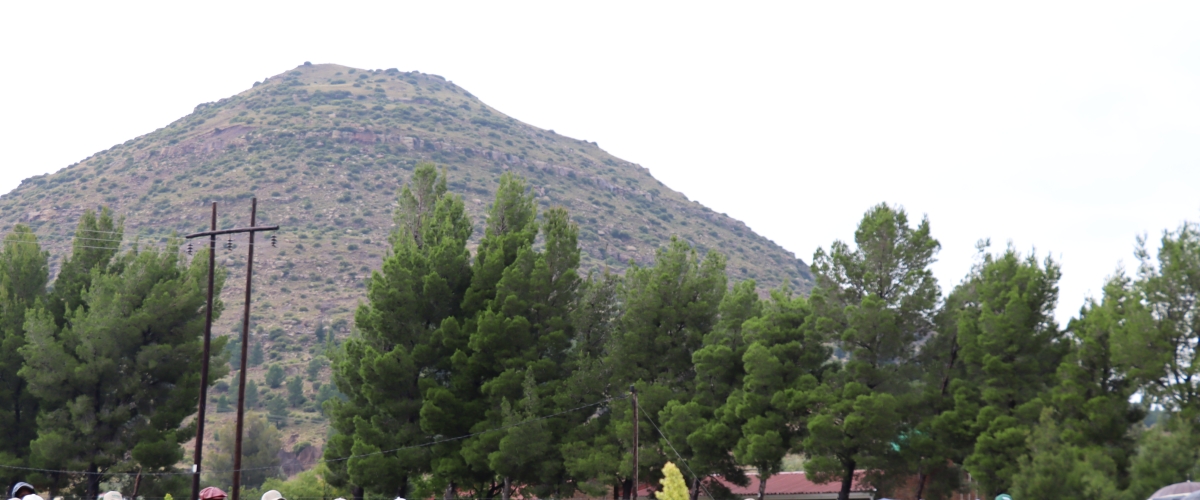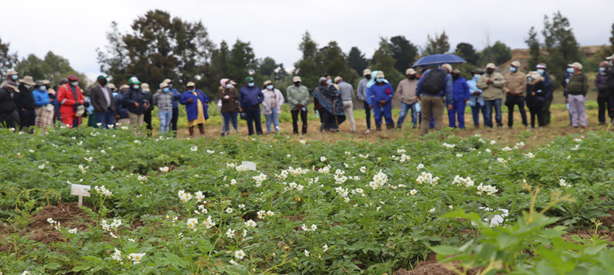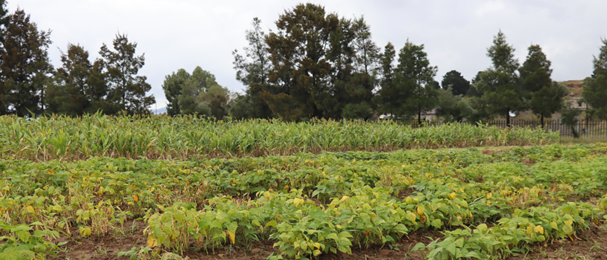
Eighty-two (82) farmers from Mohale’s Hoek district in the Mountain Kingdom of Lesotho, recently participated in a field day to appreciate up-to-date results from ongoing trials on beans, sorghum, peach trees, and potatoes undertaken by local Scientists implementing four Research and Development (R&D) sub-projects under the Agricultural Productivity Programme for Southern Africa (APPSA).
APPSA is a World Bank funded initiative currently under implementation in Angola and Lesotho and regionally coordinated by the Center for Coordination of Agricultural Research and Development for Southern Africa (CCARDESA). It is aimed at increasing the availability of improved agricultural technologies in participating countries in the SADC region. Field days are critical under APPSA to ensure that potential beneficiaries of research results are acquainted with the generation process from the onset until the final product. They also assist in decision making by providing a powerful platform for an open discussion with scientists on displayed improved technologies.
On sorghum, APPSA is implementing an R&D sub-project entitled “Strengthening the sorghum seed delivery systems in Lesotho and Angola” which is led by Dr Mpho Liphoto. Dr Liphoto reported to farmers preliminary data on the performance of sorghum landraces collected country wide. She also shared the specifics of her study which focusses on the features of sorghum landraces and tolerance to drought or wet conditions, resistance to pests and diseases among others. Sorghum is mainly cultivated by smallholder farmers in semi-arid areas where other cereals (e.g. maize) have very low adaptability.

Dr Puleng Letuma is leading the APPSA sub-project on “Performance of bean genotypes under multi- environments in Lesotho and Angola”. Farmers were exposed to 36 bean varieties that were accessed from CIAT, that are being assessed for performance under varying environmental conditions. Dr Letuma also highlighted the relevance of farmers’ participation in selecting and adopting the best performing varieties as they might complement the already available bean varieties in Lesotho. Still on beans, Dr Bontle Mapeshoane, who is leading the sub-project on “Screening bean and cowpea varieties and advanced breeding lines for productivity in low soil fertility and drought prone areas in Angola and Lesotho”, shared her preliminary results with farmers on the performance of 20 well-known varieties in the country.
A Peach tree nursery was also visited by the participants under a sub-project titled, “Collection, characterization and conservation of Cassava, Peach trees and indigenous leafy vegetables germplasm in Angola and Lesotho” which is led by Mrs Matsikoane Sefotho. Also visited was a Panamera potato trial (FAO initiative) in Siloe Research Station, led by Mr Refuoehape Chabalala. Panamera potatoes are high yielding, have good quality and are known for their resistance against pests and diseases. Besides the farmers (40% females), this field day was attended by the Director of Field Services (DFS), Director of Agricultural Research, Director of Planning and Policy Analysis, District Administrator, District Agricultural officer, Village Chief, NGOs such as RSDA and SMARDT, and Extension Officers, among others.







